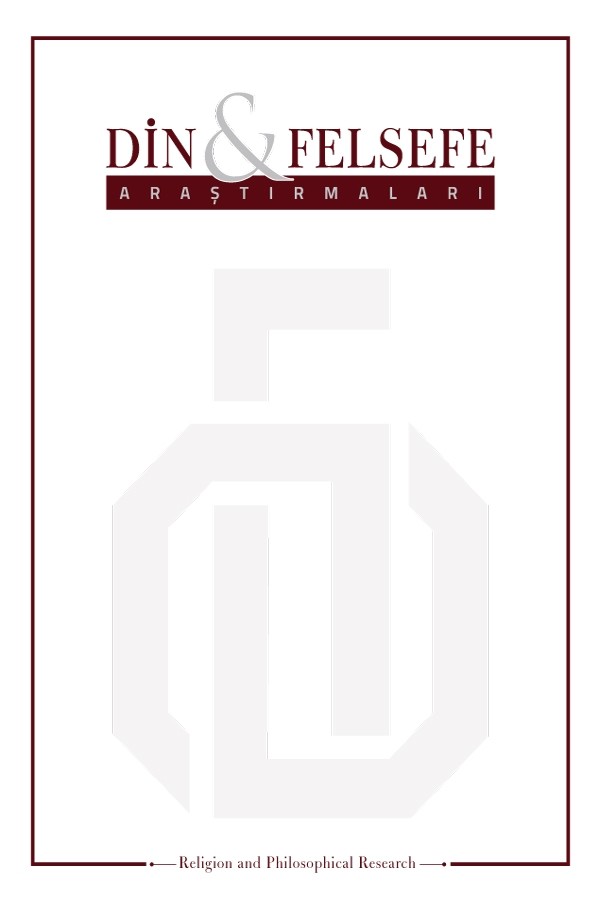
Din ve Felsefe Araştırmaları
Yazarlar: Ahmet Selman BAKTI
Konular:Din Bilimi
Anahtar Kelimeler:Fiqh,Philosophy of Religion,Truth,Reason,Revelation
Özet: As in the whole tradition of revelation, as well as information about morality and metaphysics, individuals have some duties and responsibilities in Islam. It is evident that religious texts should be handled as a whole in order to achieve healthier results because of the interrelation of the issues in the content. However, the diversity and depth in the subjects they contain have been required the study of religious texts in different scientific disciplines over time. Fiqh among these disciplines discusses the duties and responsibilities of the individual in general. In this sense, it categorizes all the actions of individuals as what should be done and what to avoid in religious terms. In addition, to tell them what they are free to do enter into the definition of duty of Fiqh. The need to examine religious texts by different disciplines is a technical and compulsory situation which does not mean that the relationship between these disciplines is completely eliminated. Because the jurisprudence acknowledges religious texts those are the starting point of Fiqh's duty as the source of legitimacy. But it is never intellectually interested in discussing the arguments and issues of those resources. Because this mission is undertaken by “Kalam”. On the one hand Kalam responds to the opponents, on the other hand it puts forward the concept of truth/religion. This is the notion of truth, at the same time, is the basis of legitimacy for fiqh. Therefore, the fiqh carries out all its activity in the light of this conception. The concept of verdict that constitutes the backbone of the whole activity is defined by Ghazali according to the concept of the truth of Esharite School. The truth/religion is also the subject for philosophy. However, there is a very important methodical distinctness between philosophy and Kalam. While the former does not give any guarantee for the result, the results of the latter are never found to contradict with the present/given truth. In terms of logic, while Kalam puts forward the propositions in keeping with the result, philosophy tries to reach the result in following its premises. But this does not mean that philosophy and religion can never be reconciled in the same truth. However it is also clear that those who will adopt the philosophical method should always face to lose the truth. On the other hand, this would mean to dispute the legitimacy of the fiqh. Therefore, at first glance the negative Fiqh's negative attitude to philosophy can be seen pretty neutral. This is the Fiqh's literature, which clearly reveals the approach of the fiqh to philosophy. There are no exceptions to the negative approach on philosophy. On the contrary, fuqaha even sometimes have had negative attitude towards logic owing to the fact that it is the basis of philosophy and sometimes have had negative attitude towards Kalam because of the fact that it coincided with philosophy. It is understood that according to the fuqaha, philosophy is not only a facade, but also has the property of disordering other things. Considering the history of fiqh, this negative attitude has not been restricted to any certain school, period or geography of fiqh. It is about Kalam's mission to deduce in reference to the available truth. Hence, while reason is an governor in philosophy, it is subject in Kalam. In this respect, it is always the referee in philosophy, it is, on the other hand, subject to explain truth and persuade the interlocutor in Kalam. However, if the interlocutors do not believe in the truth of Kalam, the reason is not only to be employee, but also acts as a referee. Otherwise, to demonstrate the truth by the same truth amounts to fall into a logic error which is ale’l-matlûba/circularity/tautology. In that case, all that remains is to obey - as philosophy does- reason's arbitration. In case of questioning the truth/faith which is proposed by Kalam It is likely that the believer possibly loses it. But it is the fact that religion requires not to persuaded mentally but to be believed at heart. Because there are innumerable examples of who do not believe in, but approve it rationally. When this is accepted, the fact that the fiqh is opposed to the philosophical questioning of the truths in question loses its meaning. On the other hand, the believer already questions instinctively in that he primarily demand to be sure of getting the truth. In order to obtain this, he either experiences revelation or agrees with the arbitration of the reason. As the truth prescribes that the experience of revelation has come to an end, the arbitration process of the reason begins naturally. As a matter of fact, the verdict whether positive or not will not mean anything more than accepting or rejecting the naturalness of the process.